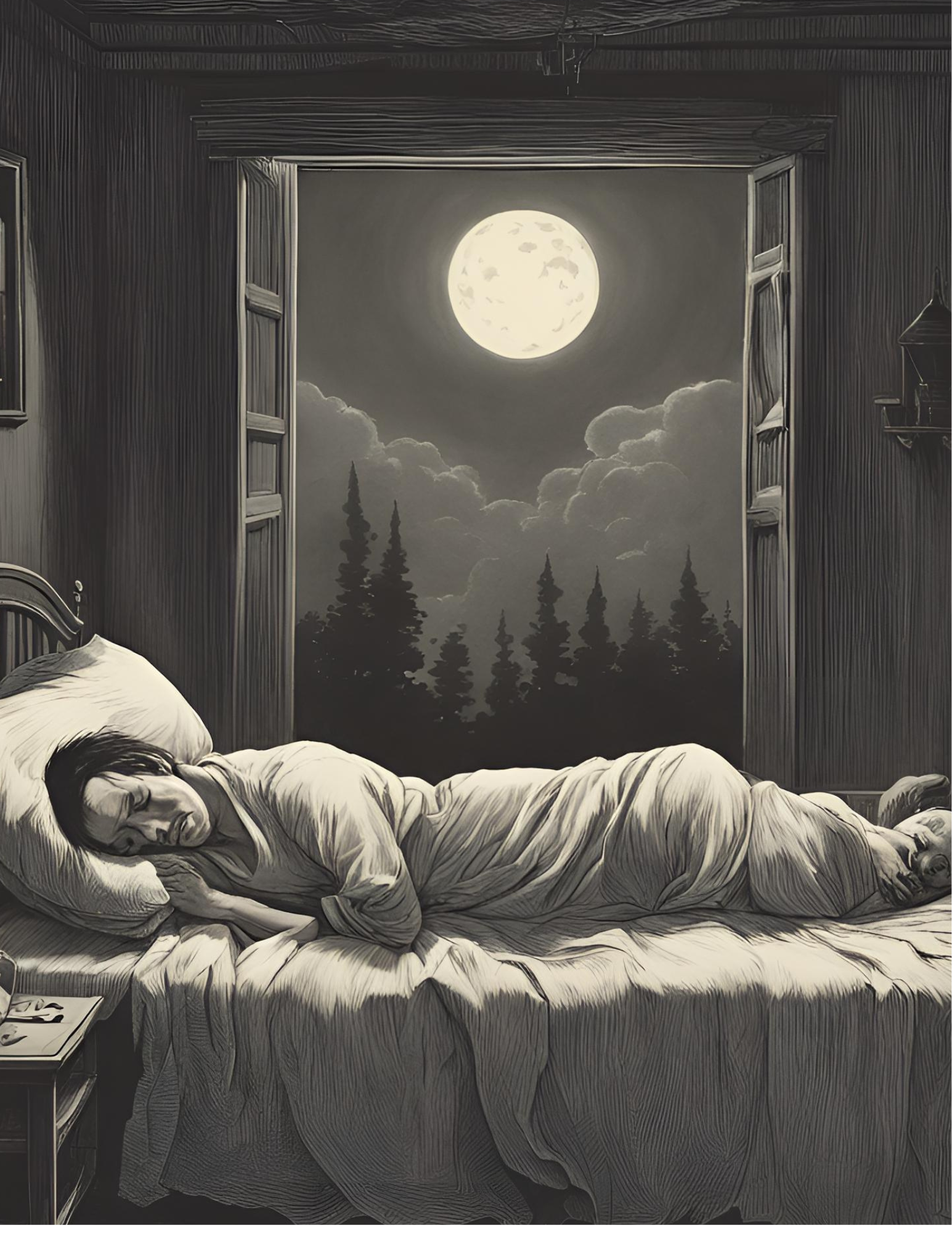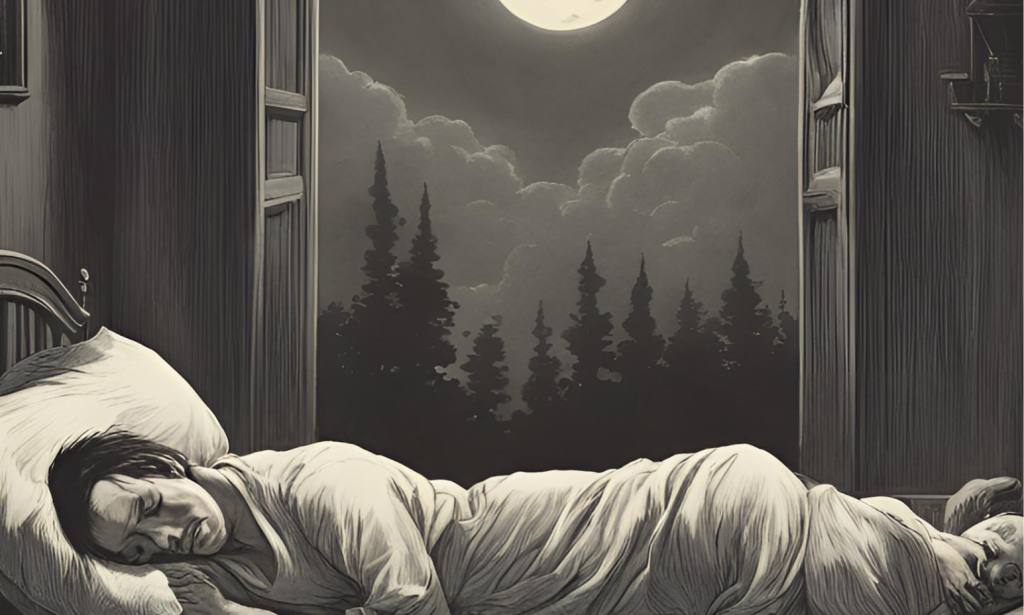
Sleep paralysis, a puzzling and fear-inducing phenomenon, has been around for hundreds of years. It is a condition characterized by the temporary inability to move or speak during the period known as hypnagogia. Sleep paralysis is often accompanied by hallucinations and a feeling of being choked to death, making it very horrifying. This article explains the science behind sleep paralysis and explores its causes, symptoms, cultural interpretations, and available treatments.
What is Sleep Paralysis?
Sleep Paralysis Definition and Experiences
Sleep paralysis is when you wake up from sleep or fall asleep with a feeling of being awake but unable to move or talk. Episodes may also involve heaviness on the chest, difficulty breathing, and vivid hallucinations. These episodes can last anywhere from seconds to minutes, leaving one anxious or scared.
The Science Behind Sleep Paralysis
Understanding Sleep Cycles and Their Impact on Sleep Paralysis
To grasp why there’s sleep paralysis, we need to understand what happens during our sleep cycles, which have two main stages: Rapid Eye Movement (REM) and non-REM sleep. During REM sleep, there is high brain activity, which usually involves dreaming most of the time; otherwise, the body remains in atonia (muscle paralysis) preventing people from acting out their dreams.
Mechanism of Sleep Paralysis: How and Why It Happens
Sleep paralysis arises when REM sleep is interrupted by wakefulness. Even though the body will be awake, the brain will remain in a dreaming state, hence leading to temporary muscle weakness that affects someone’s consciousness. This disconnection between the mind and the body is what causes the fearful feelings and visions that are normally linked with sleep paralysis.
Causes of Sleep Paralysis
Common Causes of Sleep Paralysis Episodes
Lack of Sleep
One of the common causes of sleep paralysis is not getting enough sleep. The person’s sleep cycle can be disrupted if they fail to get proper rest, thus increasing their chances of suffering from sleep paralysis.
Unregulated Sleep Patterns and Their Effects
Additionally, irregular patterns of sleeping due to factors such as shift jobs or jet lag could also lead to this condition. These abnormalities might interfere with an individual’s natural circadian rhythm, thereby giving rise to bouts of weakness.
Stress and Anxiety: Triggers for Sleep Paralysis
High levels of stress and anxiety can greatly affect one's quality of sleep resulting in this disorder. In times when one undergoes lots of stress, normal sleeping patterns may become disturbed, making occurrences like sleep paralysis more probable.
Sleep Disorders Linked to Sleep Paralysis
There is a greater risk of experiencing sleep paralysis in certain sleep disorders like insomnia and narcolepsy. This disorder, which is quite common among those who experience excessive daytime sleepiness and sudden episodes of falling asleep while walking or driving known as narcolepsy, often results in its victims waking up unable to move.
Symptoms of Sleep Paralysis
Identifying Sleep Paralysis Symptoms
Immobility: The Main Symptom of Sleep Paralysis
The inability to move or speak upon awakening or falling asleep is the main symptom of sleep paralysis. It usually takes several seconds to two minutes for this strangest of paralysis to resolve itself.
Hallucinations Experienced During Sleep Paralysis
In their experiences with sleep paralysis, many sufferers have claimed that they undergo vivid hallucinations. These are either visual, auditory, or tactile and sometimes comprise the feeling of being watched by an evil presence.
Chest Pressure and Difficulty Breathing
Persons during these conditions often suffer from chest pressure and difficult breathing when one has paralyzed while in bed. Just like in other cases, it can even leave someone feeling choked thus increasing fear and panic levels during an episode.
Cultural Interpretations of Sleep Paralysis
Cultural and Folklore Interpretations of Sleep Paralysis
Folklore and Mythology Explanations
These various cultural interpretations include examples from folklore where some believed that it was caused by supernatural power. In some cultures, there is a belief that when someone gets a nightmare all resulting symptoms might be due to a spirit sitting on his/her chest.
Modern Scientific Interpretations
Nowadays, sleep paralysis is viewed more generally from a scientific perspective even though some people still have faith in supernatural explanations. It is a phenomenon of sleep which is considered to be normal and occasionally occurs in an abnormal manner.
Frequently Asked Questions (FAQ) about Sleep Paralysis
Addressing Common Questions About Sleep Paralysis
Q: Is it dangerous to experience sleep paralysis?
A: Although it can be a scary situation, sleep paralysis does not cause any physical harm to the body. These episodes are temporary and often go away on their own without causing any permanent damage.
Q: How do I stop experiencing sleep paralysis?
A: If one wants to avoid going through another bout of this condition, he or she should maintain proper sleeping habits by keeping to a regular routine, making sure enough rest is taken, reducing stress levels as well as practicing good hygiene before going to bed. Moreover, it may help in preventing an episode if one goes for proper medical attention whenever he or she has been diagnosed with underlying medical disorders associated with sleeping patterns.
Q: Does Sleep Paralysis Indicate Seriousness?
A: There are many cases where sleep paralysis is not related to serious illness albeit frequent episodes may indicate underlying sleep disorders such as narcolepsy. In case of repeated bouts of this illness, make sure you consult your doctor for advice.
Q: Can lifestyle changes help with sleep paralysis?
A: Yes, it is possible for lifestyle changes to give assistance in reducing the frequency of sleep paralysis episodes. Maintaining a regular sleep schedule, creating a relaxing bedtime routine, decreasing caffeine and alcohol consumption and using stress management techniques like meditation or exercise are some of these changes.
Treatment Options for Sleep Paralysis
Effective Treatments for Sleep Paralysis
Improving Sleep Hygiene to Prevent Sleep Paralysis
An effective method to reduce the occurrence of sleep paralysis is by improving one’s sleeping conditions. This involves keeping to a set sleeping schedule, having comfortable surroundings for sleeping as well as avoiding stimulants such as caffeine near bedtime.
Stress Management Techniques
Besides mindfulness exercises before going to bed, stress can be managed through meditation and regular physical activity. It reduces disruptions in sleep cycles that might trigger episodes.
Cognitive Behavioral Therapy (CBT) for Sleep Paralysis
This treatment approach may benefit patients experiencing sleep paralysis. Such cognitive behavioral therapy aids in managing thought processes and behavior that impacts negatively on rest and triggers anxiety thereby minimizing how often one experiences sleep interruptions.
Medical Intervention When Needed
In a situation where sleep paralysis is frequent and disrupts someone’s sleep, a medical doctor may recommend some type of treatment. This can include medications to regulate sleep patterns or treat underlying sleep disorders such as narcolepsy.
Conclusion
Summarizing Sleep Paralysis: Causes, Symptoms, and Treatments
Sleep paralysis is an interesting but terrifying occurrence that faces numerous people. Understanding the psychological and physiological mechanisms behind sleep paralysis can help explain the experience and reduce anxiety about it. By observing good sleep habits, managing stress and seeking professional assistance where necessary, individuals can minimize the chances of getting these attacks, thus improving the overall quality of their sleep. Furthermore, knowing that it is part of normal sleeping behavior will enable individuals to handle these situations better.
Additional Resources for Sleep Paralysis Information
Therefore, for more information on sleep paralysis and other related conditions, kindly visit trusted websites such as the American Academy of Sleep Medicine, National Sleep Foundation, among others.


You must be logged in to post a comment. Please Login or Register .